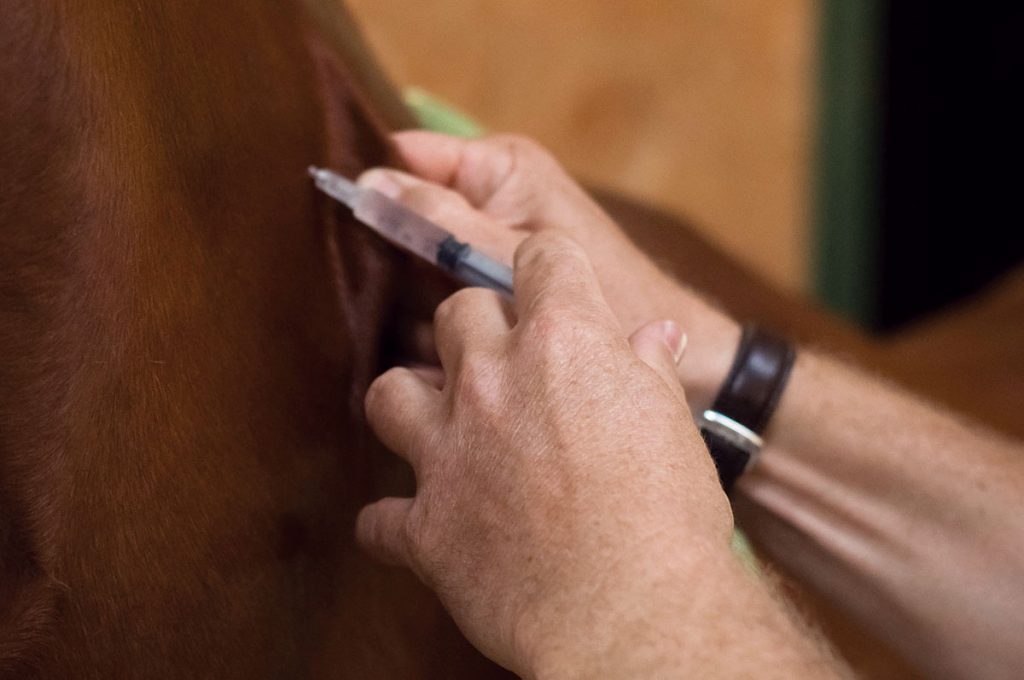By Daniel H. Grove, DVM

2020 has been a challenging year for our country. Front and center on the news most days is the COVID-19 virus and what is going on with it. It looks like we will have a vaccine very soon for it, but there are other outbreaks you may not be hearing about. Currently in California, I know of two different ones affecting our horses.
The first is an Equine Influenza outbreak that is critically affect a wild herd of donkeys in Riverside county. It is estimated around 36 have died from the disease. These animals provide a reservoir for the disease that can easily spread to our own horses. Influenza in horses usually affects the respiratory tract and can cause fever, cough and lead to pneumonia.
The second outbreak is of herpes virus in Los Angeles county. It consists of only one horse at the time of writing this, but over 60 horses are quarantined at the same facility because of this. This is the typical strain of the disease that we do have a vaccine for, not the one you may have heard about that attacks the nervous system that we do not have a licensed vaccine for. This disease is similar to the influenza disease as fever and respiratory symptoms often occur. Additional symptoms are urine dribbling, hind end weakness, lethargy, and loss of tail tone.
Here is the good news. Both of these diseases have efficacious vaccines available for them. Both of these diseases are good examples of why we need to vaccinate our horses. There is quite a bit of concern out there for using vaccines right now. I cannot speak for the vaccine reaction problems in humans, but I can in my equine populations that I have been responsible for vaccinating. I can tell you that most horses tolerate these vaccines very well. The most common side effect I see with these vaccines is soreness at the injection site. This soreness usually resolves in a few days with the aid of some anti-inflammatories.
These are just a few of the diseases that have vaccines available. Vaccines are less expensive than treating the disease and are easier on the animal than experiencing the disease without the aid of the vaccine response. Make sure to keep up on the vaccine schedule your veterinarian tailors to you and your horses to keep their immune systems ready for fighting off these diseases.
–Dan
Got a question for Dr. Grove? Send your inquiries to vet@horsetrader.com, and it could be answered by Dr. Grove in a future column. Dr. Grove is based at West Coast Equine Medicine, headquartered in Fallbrook, Calif., where he lives with his wife Kristen.
Leave a Comment
All fields must be filled in to leave a message.